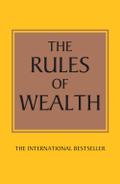RULE 55
Understand how the stock market really works
It’s simple. People buy, sell and trade investments – called stocks – that they have made in companies. So, how does it all work? And, more importantly, what works?
The easy answer to the last question is ‘Buy low; sell high,’ but don’t you just know that there’s more to it than that. The question of deciding what to buy, how much to pay for it and when to buy (and then sell) it has been the subject of entire libraries of books, most of them bigger than this one, and so I’ll limit my contribution to a few choice rules, and the first of these is to understand the real forces at play: value and speculation.
Personally, I think economists were put on this earth to make astrologers look good, but I’m not averse to quoting them, and one of the most quotable – John Maynard Keynes – once said that the stock market is just like a beauty contest.
Now when he said that, he didn’t mean that stockbrokers should abandon their suits for swimwear and profess a desire for working with children or world peace. He was referring to a type of British beauty contest that used to be run by London newspapers, in which readers could win a prize by picking the beauty whose photograph was deemed to be the most beautiful by the greatest number of other readers. This meant that winning was not about picking the prettiest, nor even about predicting which the average reader would think the prettiest, but instead winning became a game of anticipating what the average reader would expect the average choice to be. And this, believed Keynes, was how the stock market works. Investors try to make money by buying stocks that they think other investors will want to buy in the future, and the price that they’re prepared to pay for a stock depends less on the fundamental value of the company than on their expectations of what everybody else will be willing to pay for it. That’s the essence of speculation in the stock market, and that’s why the fundamental value of a stock and its price on any given day can be so different.
Speculating on stock market movements is great fun if you want to observe mass psychology in action, but in an uncertain world it’s not the road to wealth. And it’s riskier than you realise unless you really know what you’re doing. So don’t start playing the game until you’re sure you understand the rules. But if you really want to accumulate wealth in the stock market, then here’s my advice. Get rich slowly, but surely, with value. Ignore all the noise, the clamour about what this piece of news or that piece of gossip means for a price; stay away from the ‘proven’ techniques for predicting what prices will do tomorrow based on what they did yesterday (technical analysis! don’t be fooled by the rational-sounding label, it’s irrational) and resist, please resist, the temptation to dive in and out of stocks chasing a quick buck. If you’re going to invest in shares, look for value. Look for companies whose share-price doesn’t reflect their worth; look for companies that make or do something that people will find more valuable in the future, and look for companies whose value is appreciated by the investment funds (we’ll meet them in Rule 56).
Once you’ve found them, buy them, and unless the fundamentals change, buy them for the long run. Wait for their value to appreciate, and watch as your wealth accumulates.
So, to buy the right stocks, at the right price of course, don’t follow the crowd, find the value. Easier said than done, you might say, and you’d be right. It can take a lot of research, but you can make it easier if you follow the next Rule.
